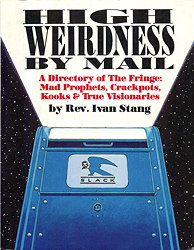Cartoons
Tony Sarg
Tony Sarg, "America's Puppet Master," did some weird stuff, among which were early Macy's Thanksgiving Parade balloons; the cartoon below; and his inflatable beach monster on Nantucket.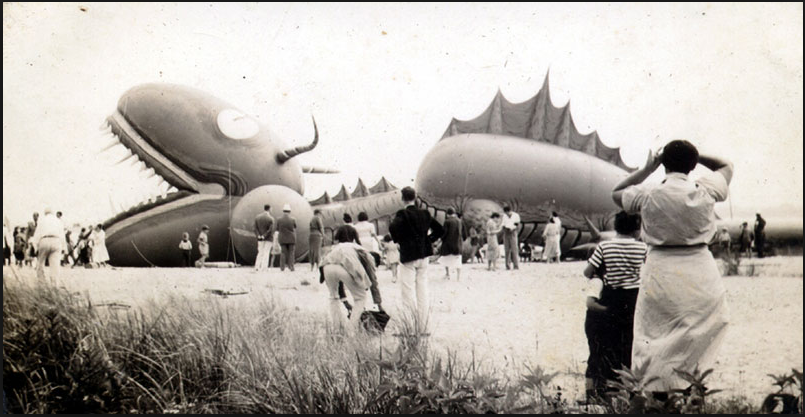
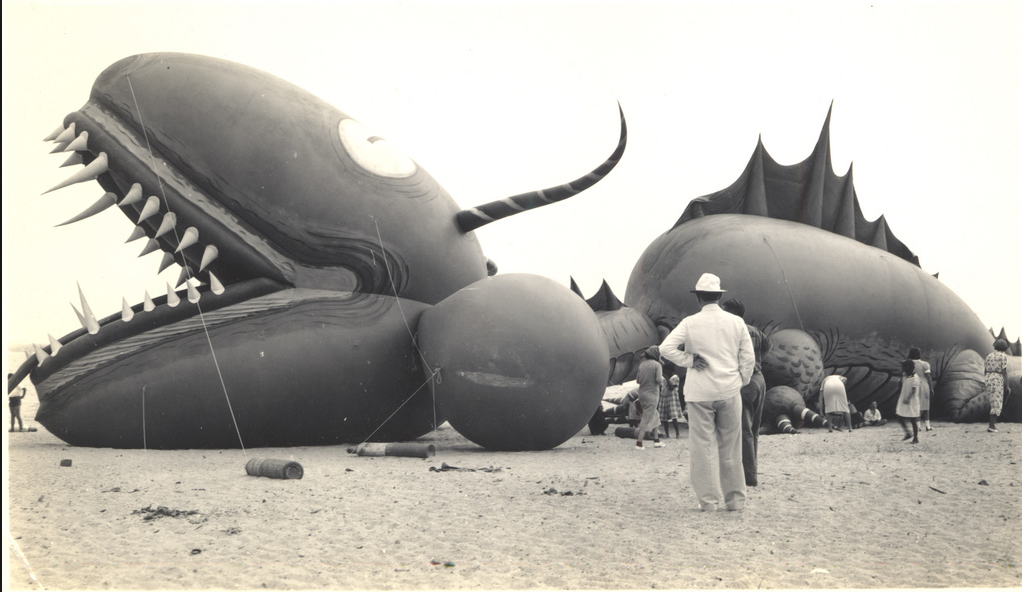
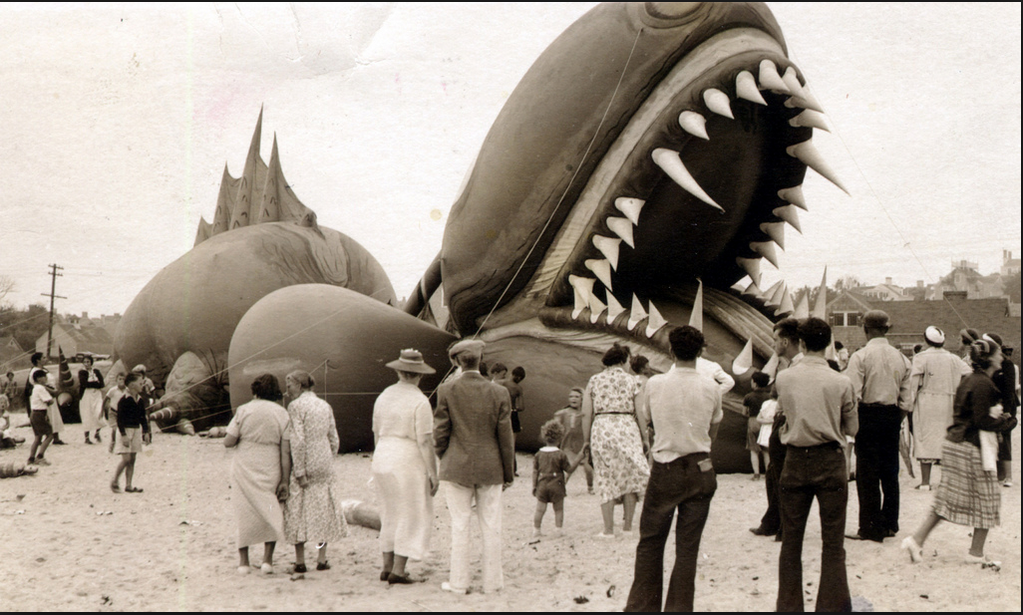
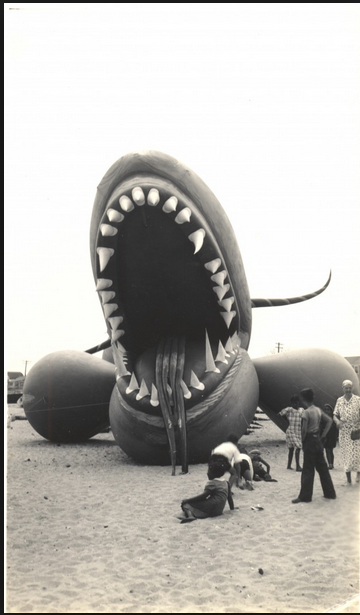
Posted By: Paul - Thu Oct 12, 2017 -
Comments (3)
Category: Puppets and Automatons, Cartoons, 1920s, 1930s
Easy Does It: Canned Goods Rule
The bad-acid-trip Good Fairy of Canned Vegetables talks about marketplace disruptions and paradigm shifts, and serves as Cupid. Be sure to enjoy the suicidal tomatoes plunging to their canned goods deaths.
Posted By: Paul - Sat Sep 23, 2017 -
Comments (0)
Category: Business, Advertising, Corporate Mascots, Icons and Spokesbeings, Products, Retailing, Food, Cartoons, 1940s
“Yogi” by The Ivy Three
Posted By: Paul - Tue Sep 05, 2017 -
Comments (0)
Category: Humor, Music, Cartoons, 1960s
The Films of Suzan Pitt
Wikipedia page.
Posted By: Paul - Sun Jul 30, 2017 -
Comments (6)
Category: Art, Avant Garde, Cartoons, 1970s
Oedipus
Oedipus, National Film Board of Canada
Posted By: Paul - Mon May 01, 2017 -
Comments (2)
Category: Surrealism, Cartoons, Twenty-first Century, Head
Chipmunk Punk
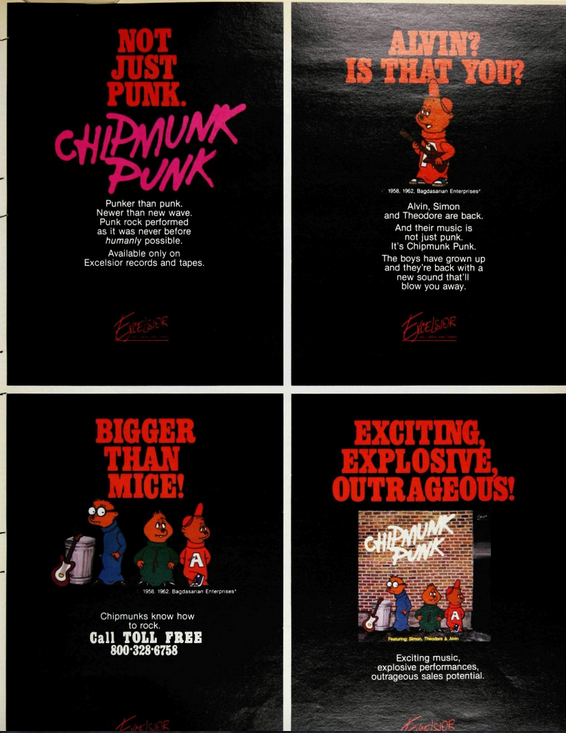
Posted By: Paul - Thu Apr 06, 2017 -
Comments (5)
Category: Animals, Anthropomorphism, Music, Cartoons, 1980s, Cacophony, Dissonance, White Noise and Other Sonic Assaults
Fred and Barney Meet the Thing
A mashup no one ever asked for.
Posted By: Paul - Tue Mar 07, 2017 -
Comments (1)
Category: Ineptness, Crudity, Talentlessness, Kitsch, and Bad Art, Television, Comics, Cartoons, 1970s
The Voice of Snow White
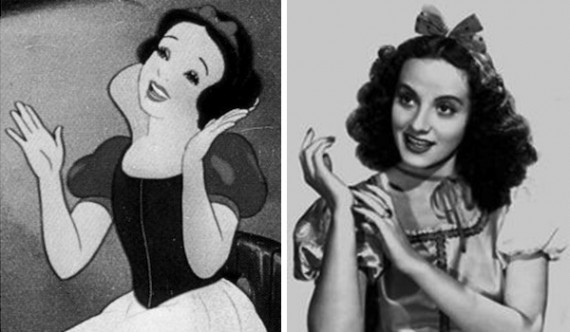
Snow White and Adriana Caselotti (source: The Disney Wiki)
I came across a story in a 1938 newspaper about how Adriana Caselotti got the job of being the voice of Snow White in Disney's 1937 movie:
Unfortunately for Caselotti, her dream of becoming a movie actress didn't turn out as she hoped. In fact, providing the voice for Snow White turned out to be the worst career move she could have possibly made as an aspiring actress — because Walt Disney, wanting to preserve the "illusion of Snow White," decided he couldn't have her voice be heard in any other context. So he prevented Caselotti from ever finding work as an actress again, except for minor appearances in The Wizard of Oz and It's a Wonderful Life.
As a consolation prize for having destroyed her career, the Disney company named her a "Disney Legend" in 1994.
From wikipedia:

Wilkes Barre Times Leader - Apr 8, 1938
Posted By: Alex - Sun Jan 08, 2017 -
Comments (1)
Category: Movies, Cartoons, Actors
Yogi’s Space Race
Here in the fortieth anniversary year of Star Wars, let us pause to consider all the ways in which it elevated the genre of science fiction, inspiring such followers as Yogi's Space Race.
Wikipedia page here.
Posted By: Paul - Thu Jan 05, 2017 -
Comments (2)
Category: Aliens, Anthropomorphism, Ineptness, Crudity, Talentlessness, Kitsch, and Bad Art, Homages, Pastiches, Tributes and Borrowings, Cartoons, 1970s
Just Imagine
The uproarious laughter by the human executive at the antics of Tommy Telephone, a plainly impossible vision, proclaims that the fellow is gratefully descending into the dark swamp of insanity due to the high stresses of his job.
Posted By: Paul - Sat Dec 10, 2016 -
Comments (2)
Category: Business, Advertising, Corporate Mascots, Icons and Spokesbeings, Products, Communications, Delusions, Fantasies and Other Tricks of the Imagination, Technology, Telephones, Cartoons, Stop-motion Animation, 1940s, Brain Damage

| Who We Are |
|---|
| Alex Boese Alex is the creator and curator of the Museum of Hoaxes. He's also the author of various weird, non-fiction, science-themed books such as Elephants on Acid and Psychedelic Apes. Paul Di Filippo Paul has been paid to put weird ideas into fictional form for over thirty years, in his career as a noted science fiction writer. He has recently begun blogging on many curious topics with three fellow writers at The Inferior 4+1. Contact Us |

